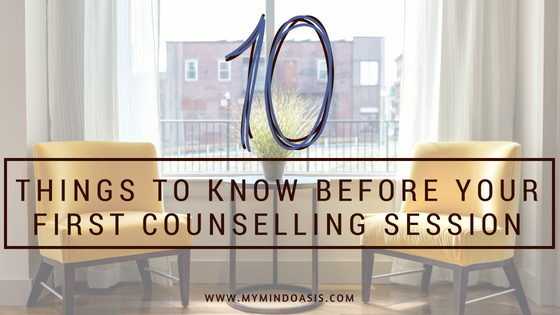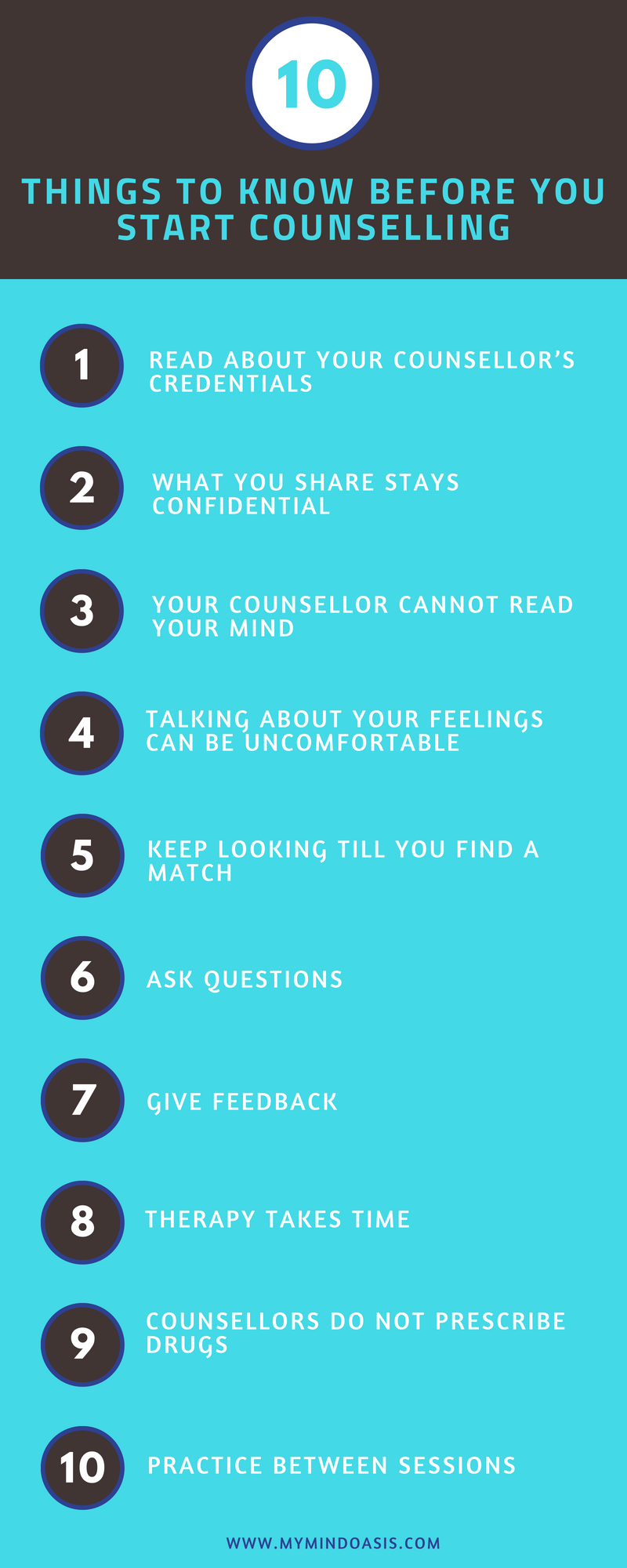After weeks, maybe even months of contemplation, you have finally decided to start therapy. Congratulations! It’s definitely a step in the right direction. You have probably struggled with questions like: Do I really need professional help? Is my problem big enough? Is my problem too complex? Will I have to take medication? What if it doesn’t help?
If this is your first time in counselling, the time till you start your first session is a mix of excitement, intimidation and anxiety. Knowing what to expect will help to put your mind at ease and also to make the most of your therapy sessions. Here are 10 things to keep in mind before your first counselling session:
1
Read about your counsellor’s credentials
Most counsellors and therapists have their own websites or a profile on an online directory (such as the ACT or Therapie in Berlin). Reading this helps in understanding their area of expertise (e.g. bereavement, depression, substance abuse, relationships, eating disorders, trauma). It is also helpful to know about the therapist’s approach and training (such as person-centred or cognitive-behavioural or psychodynamic therapy), license and membership to a professional body. Look for someone who is transparent about his/her qualifications and affiliation.
2
What you share stays confidential
All information shared by you during counselling sessions, including any forms you might fill out, is strictly confidential. Your counsellor will explain the limits to confidentiality during your initial session. These limits are in place to ensure your safety in case of any concerns regarding your safety – especially in the presence of suicidal thoughts. The counsellor will not disclose your identity or discuss your personal information without your permission.
3
Your counsellor cannot read your mind
Counsellors are trained to make observations based on your narrative and behaviour, but to get the most out of your sessions, be honest about your thoughts and feelings. The more you open up, the more value you will find in the process. There’s nothing that is ‘best left unsaid’ when it comes to therapy!
4
Talking about your feelings can be uncomfortable
Sometimes, talking about your feelings, past experiences, relationships etc. involves stepping out of your comfort zone and can give rise to some discomfort or anxiety. Usually, discussing these uncomfortable feelings with your therapist helps to move forward. However, you don’t have to talk about anything that feels overwhelming or are not ready to delve into.
5
Keep looking till you find a match
Your specific goal for seeking therapy may vary, but the larger end-goal is to be able to work through your issues in a safe, non-judgmental environment with a qualified professional. If you feel uneasy or that you are unable to connect with a particular therapist, don’t give up on the process. Try talking to your counsellor about your concerns and if you still feel the same way, don’t hesitate to find a new counsellor!
6
Ask questions, voice doubts
Don’t hesitate to ask questions during sessions. You don’t have to censor yourself or worry about the counsellor’s opinion. Feel free to voice your concerns without hesitation. You can talk about anything without worrying how it sounds or what the counsellor will think of you! Be curious, be inquisitive.
7
Give feedback
The therapeutic relationship between the client and counsellor is based on mutual trust and openness. If something doesn’t seem to be working for you, tell your counsellor about it. If you want more help with something or if a particular technique helps, let you therapist know.
8
Be Patient – It’s Not a Quick fix
Clients who come looking for an instant solution to their problems often leave counselling prematurely, before any real change can happen. To avoid such disappointment, remember that lasting change is a process that may require more time than you initially anticipated. This does not mean that you have to be in therapy for years, but it’s not a quick fix either!
9
Counsellors do not prescribe drugs
Irrespective of their approach, counsellors and psychologists cannot prescribe any medication. If you are looking for pharmaceutical intervention, you can consult a medical doctor such as a general practitioner or a psychiatrist.
10
Practice between sessions
Therapy is a place to unlearn unhelpful behaviours and learn new ones. Use the time between sessions to put new behaviours to practice. You might also find it useful to maintain a journal to record your thoughts and keep track of progress. This will help you in feeling prepared for your sessions and make the most out of the counselling hour.



